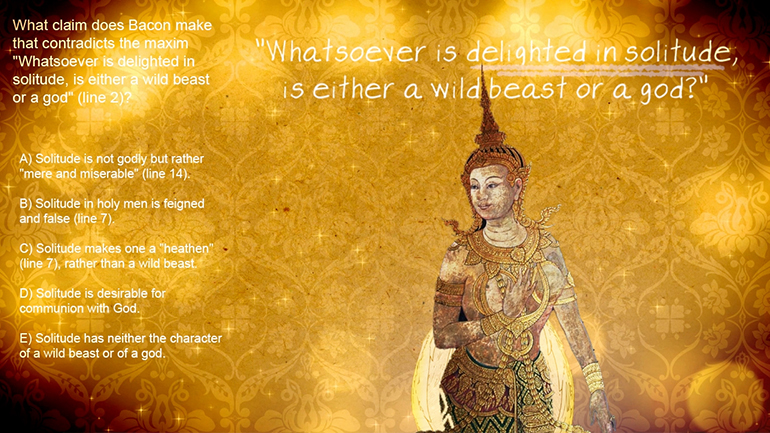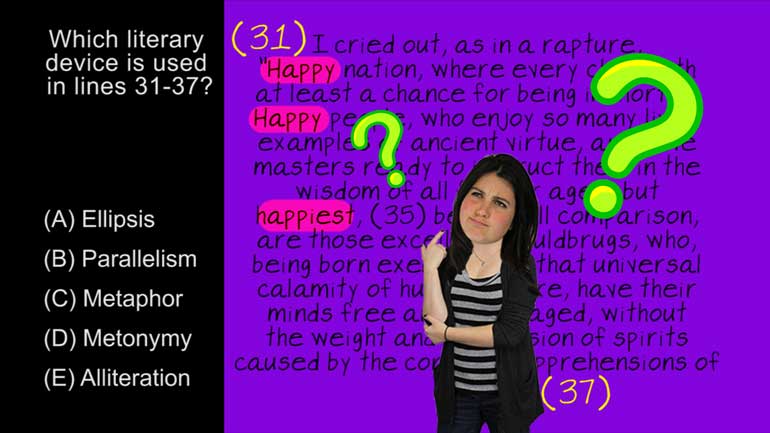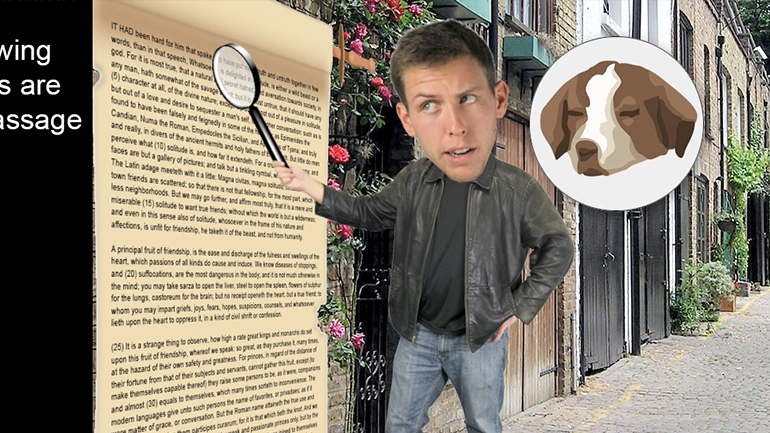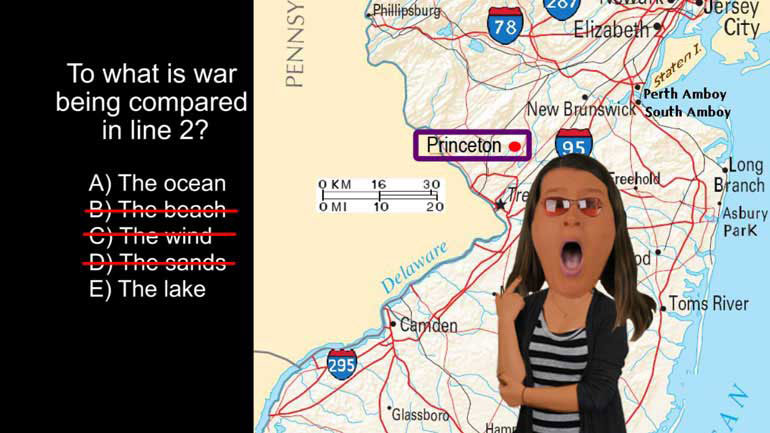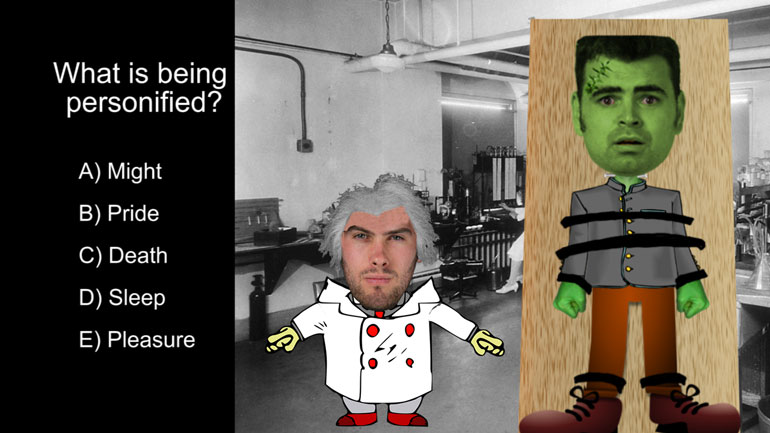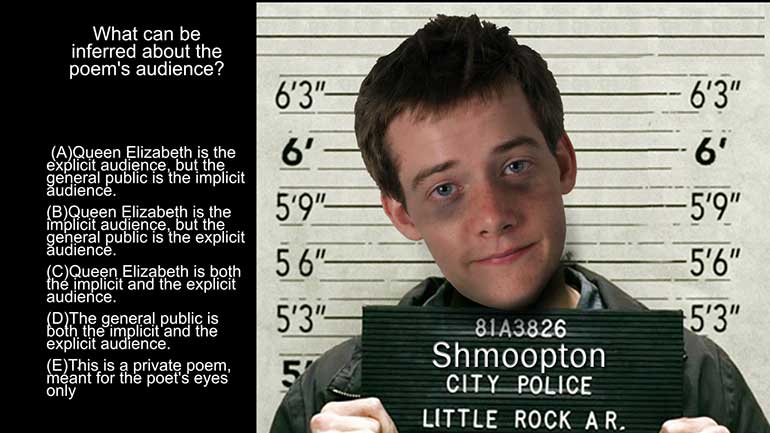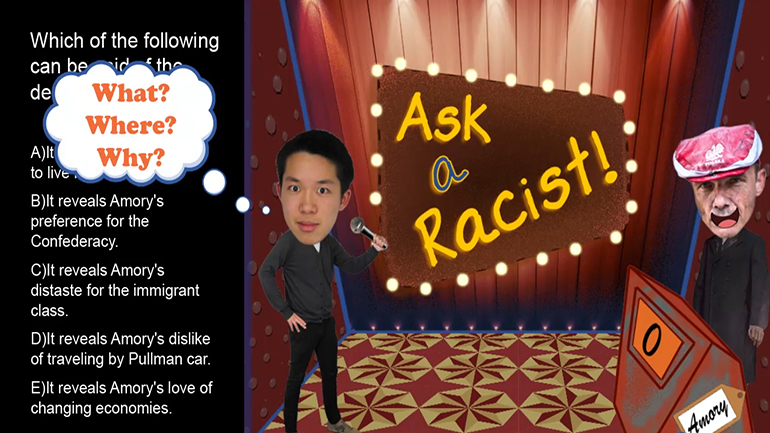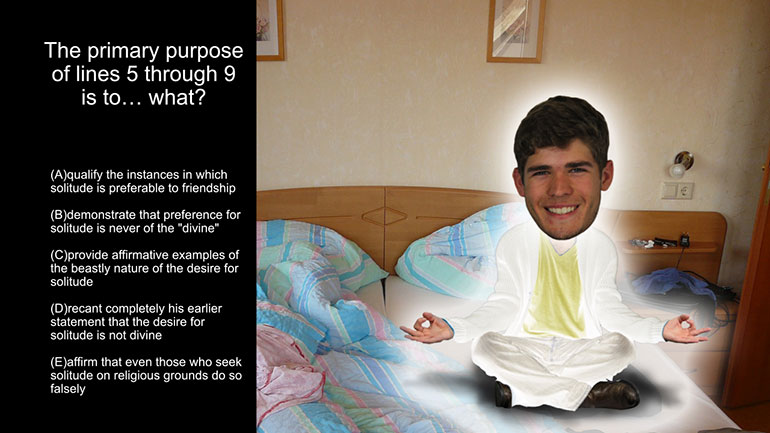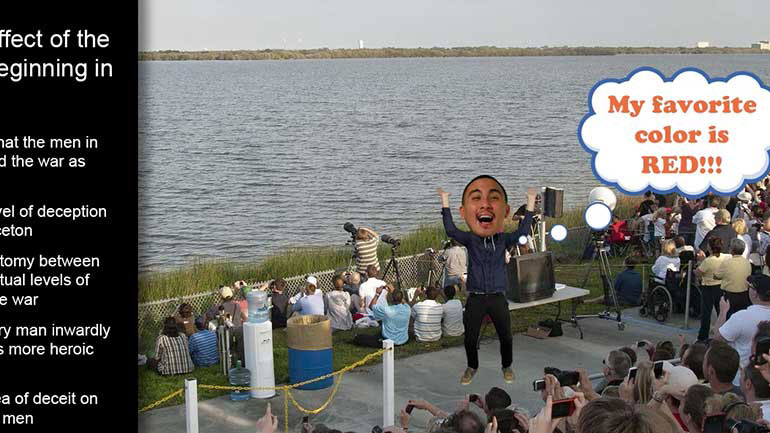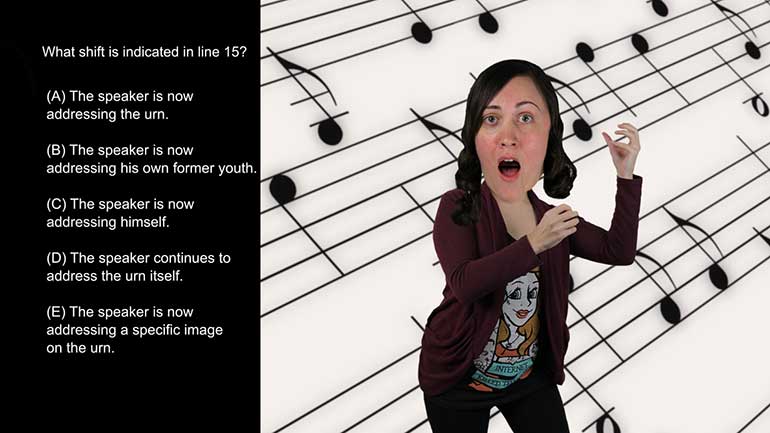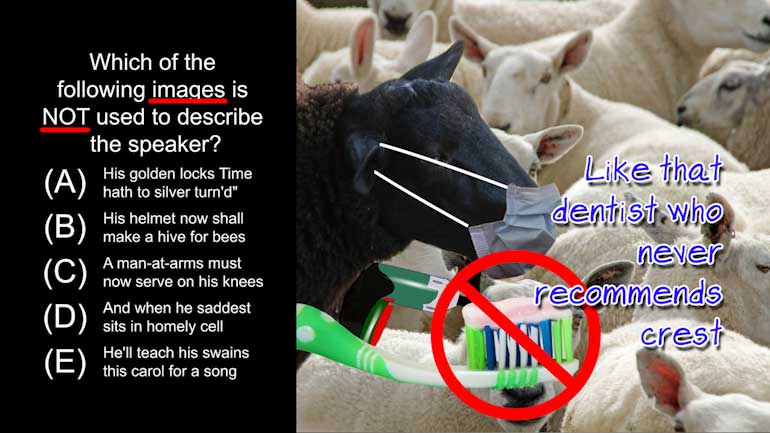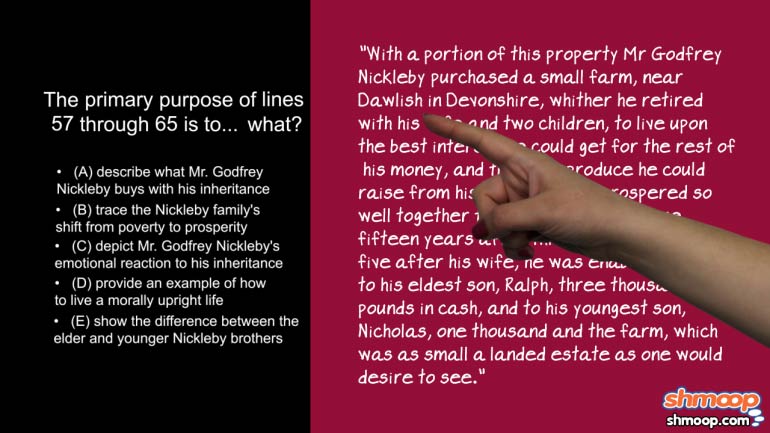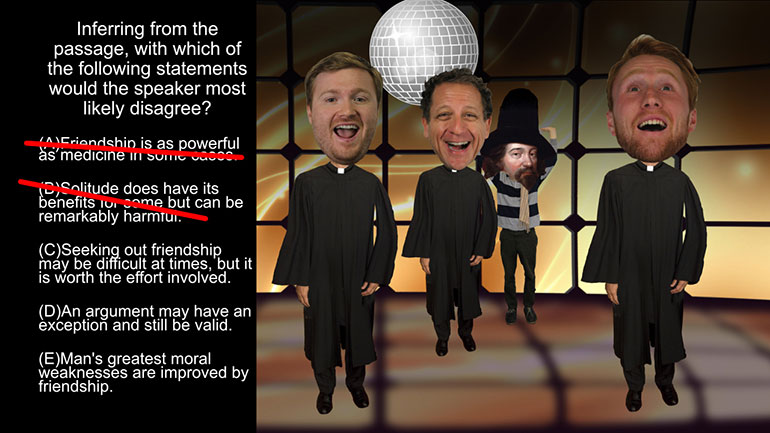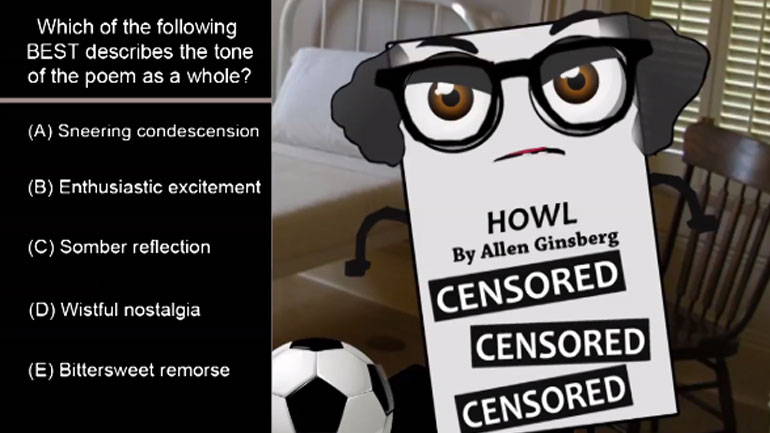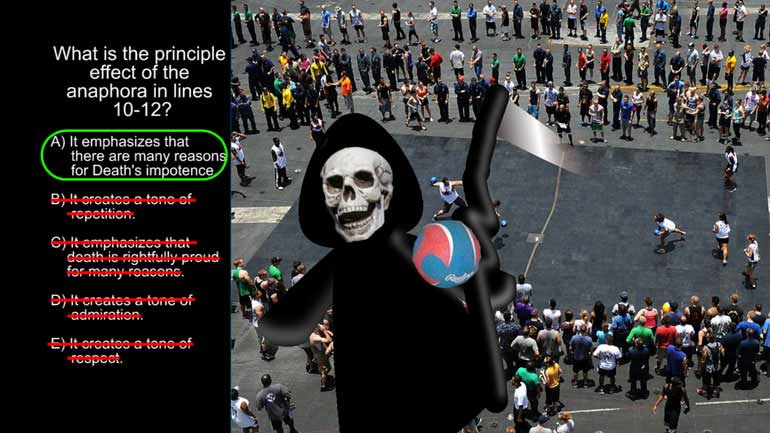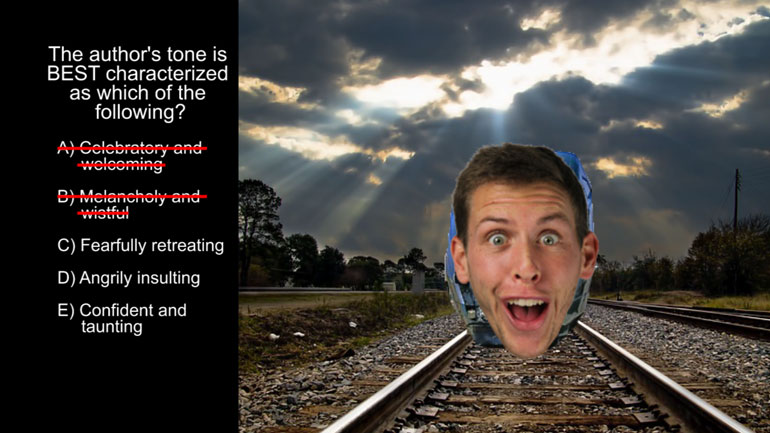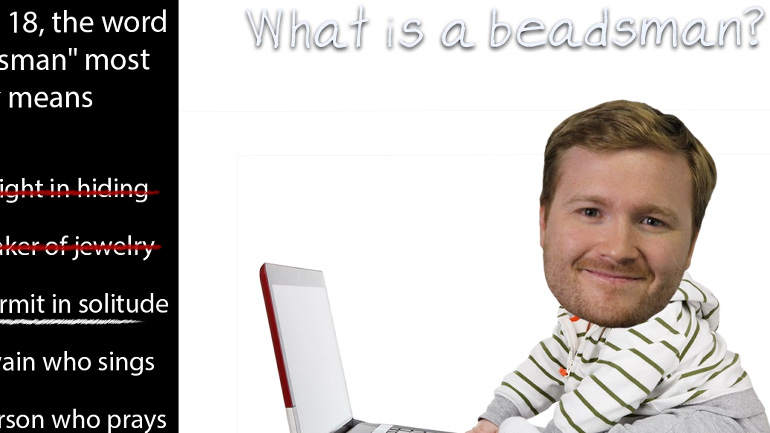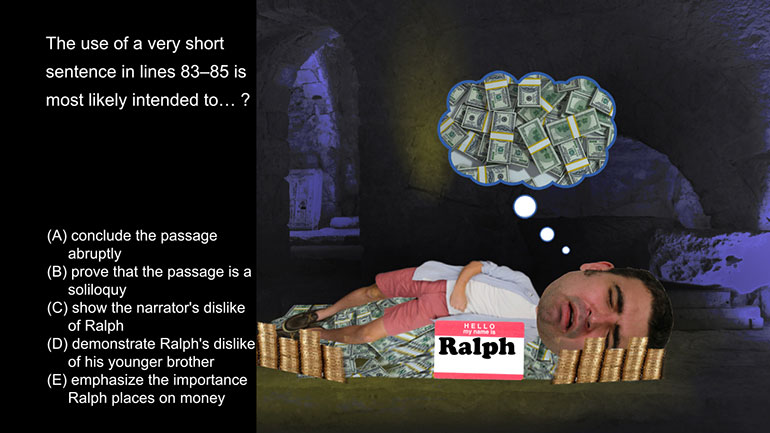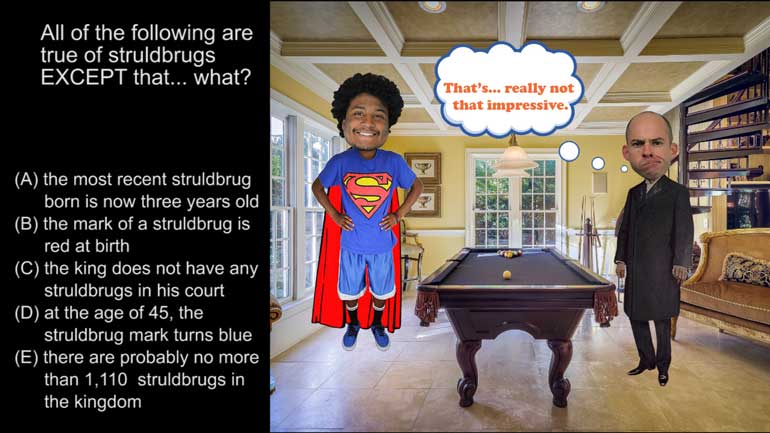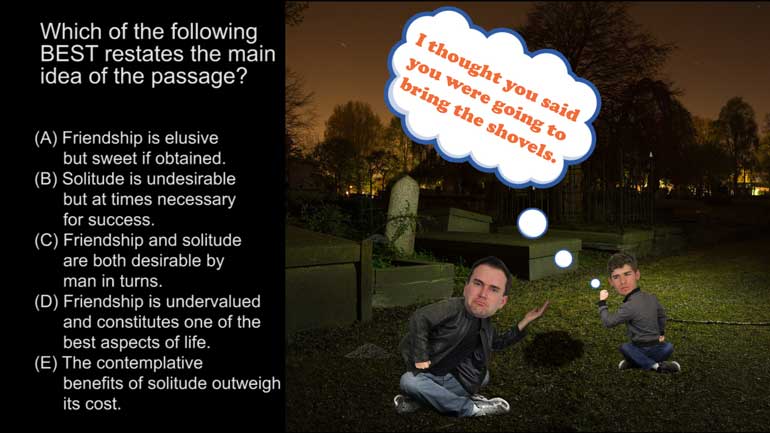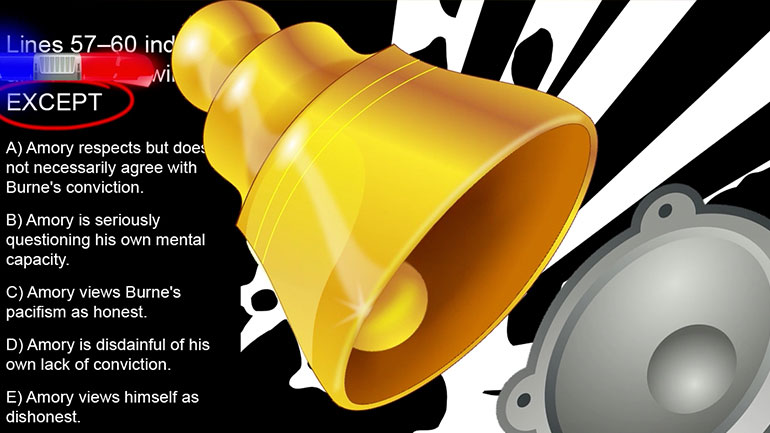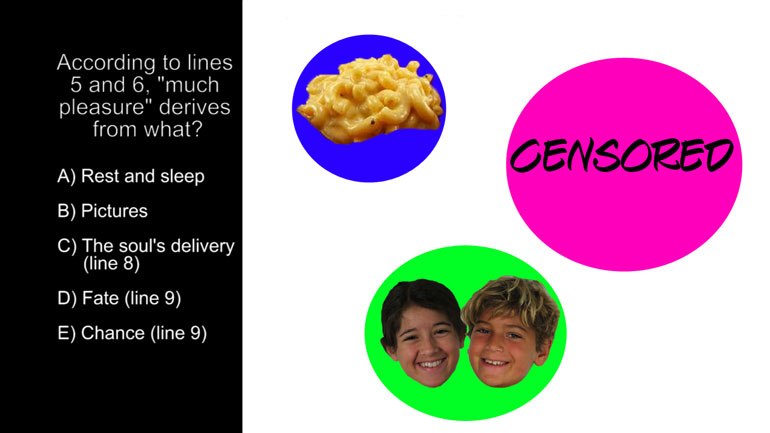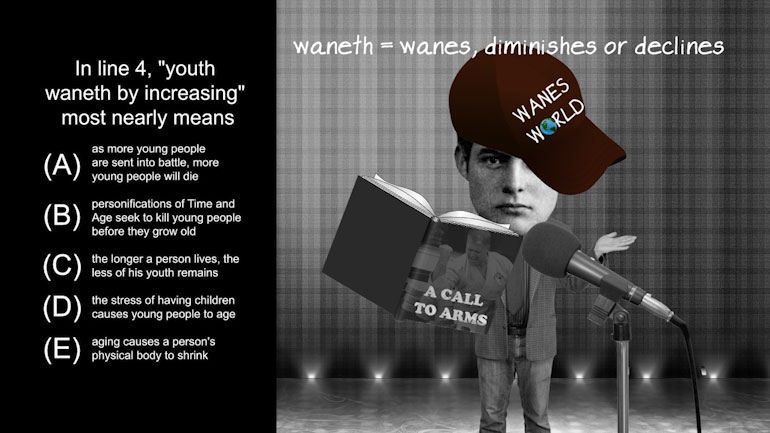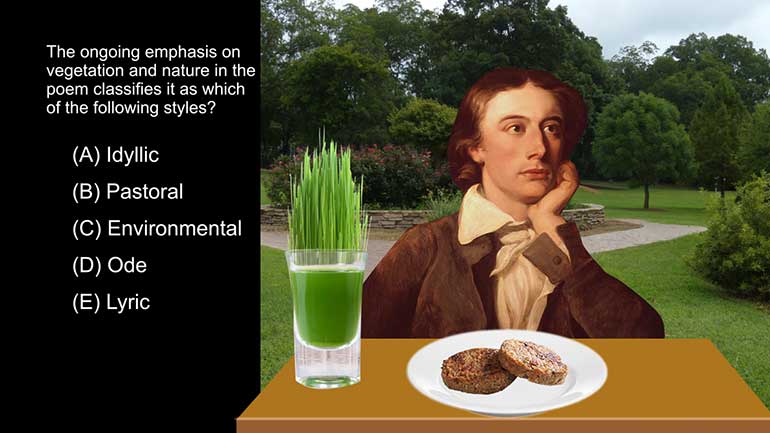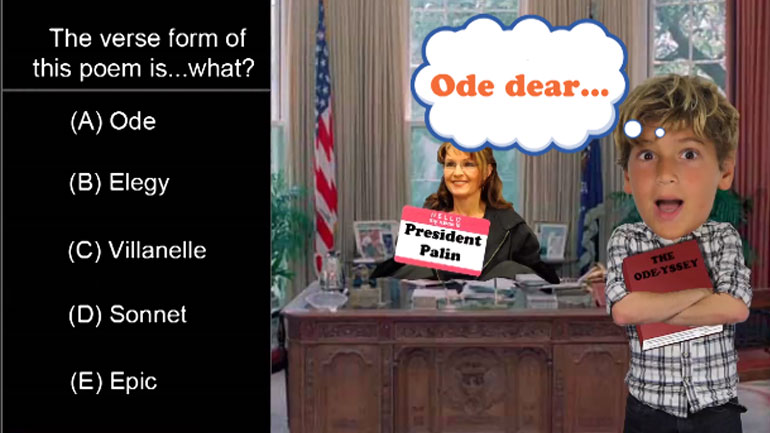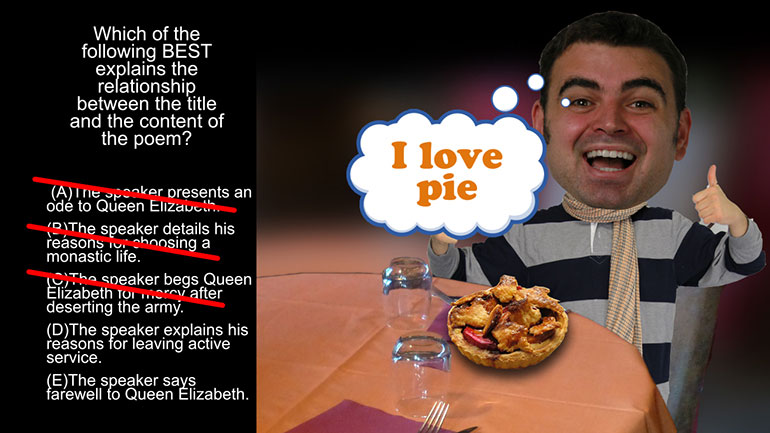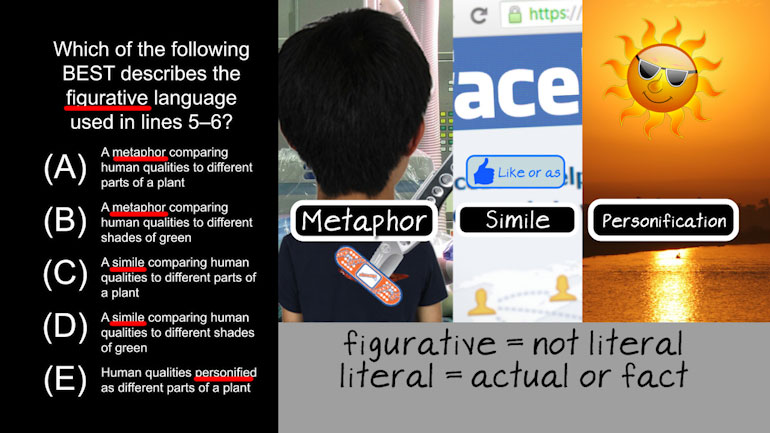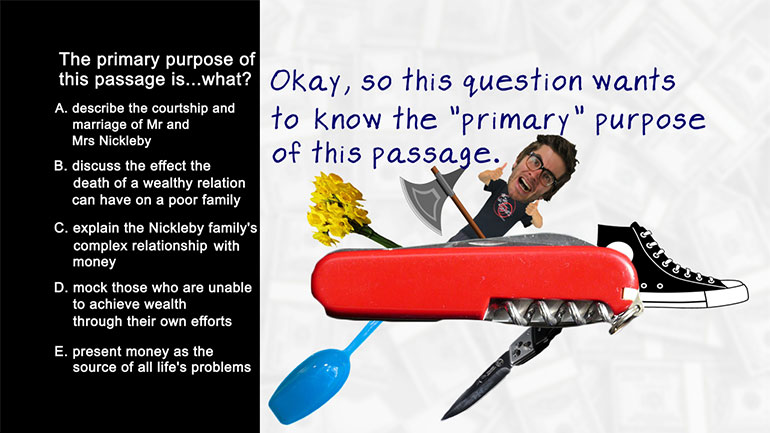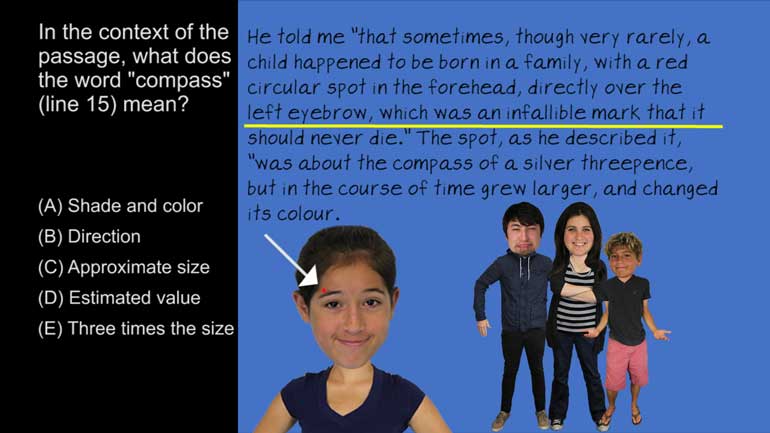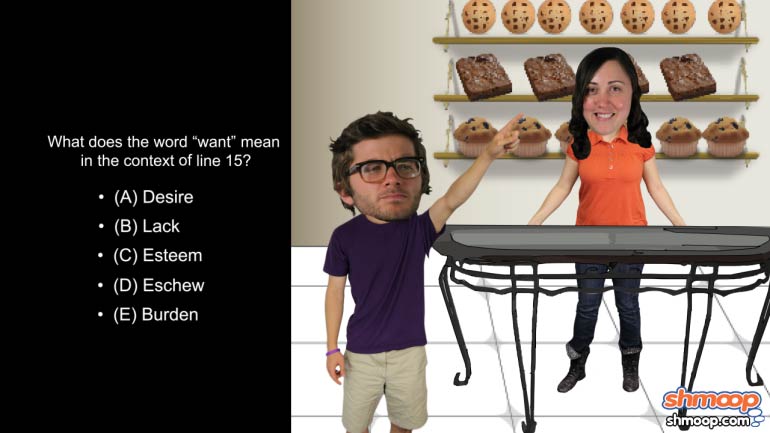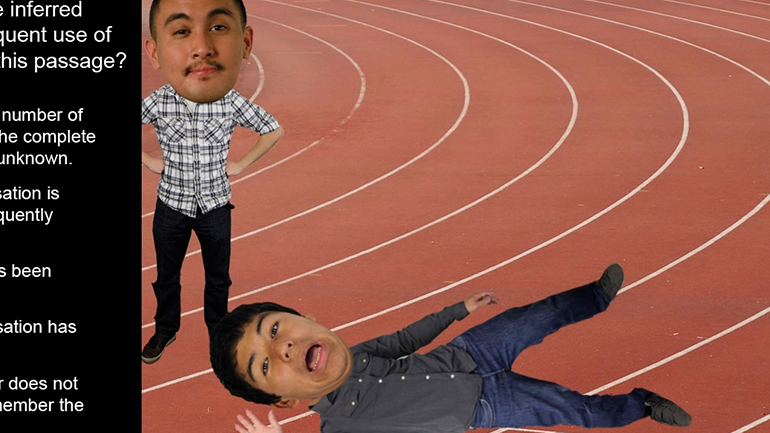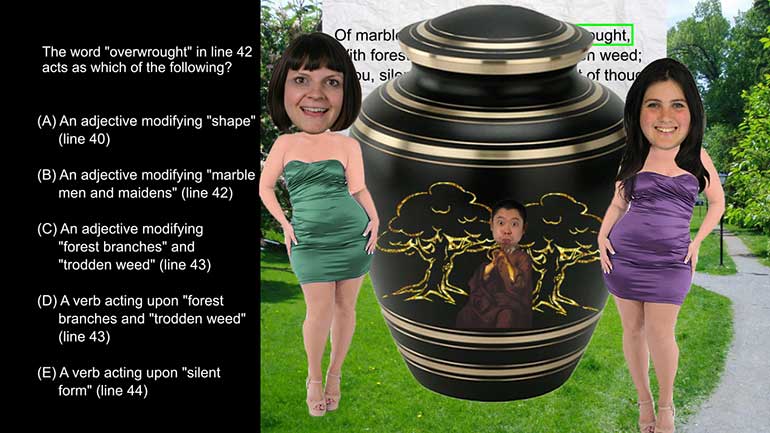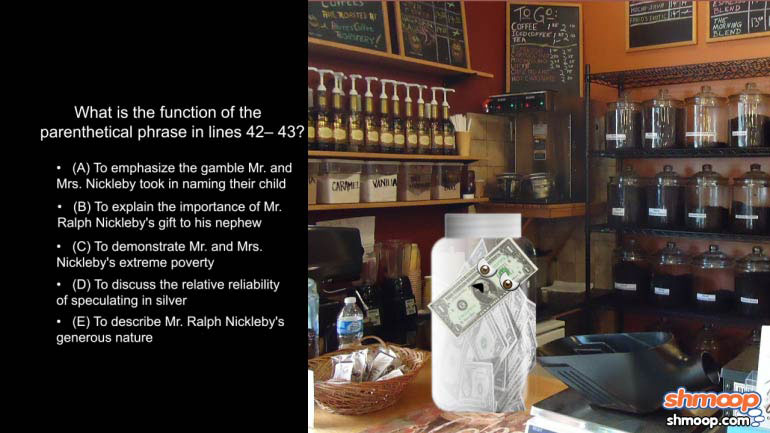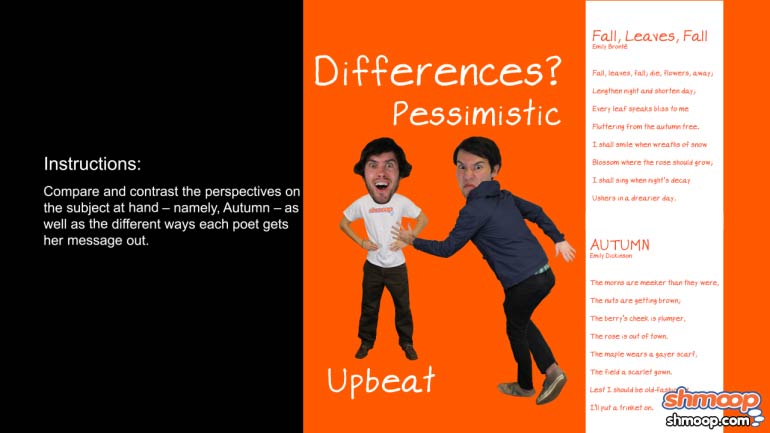ShmoopTube
Where Monty Python meets your 10th grade teacher.
Search Thousands of Shmoop Videos
AP English Literature and Composition Videos 75 videos
AP English Literature and Composition 1.2 Passage Drill 4. As which of the following is the object being personified?
AP English Literature and Composition 1.4 Passage Drill 3. How is Burne's view of pacifism best characterized in lines 57 through 67?
AP English Literature and Composition 1.6 Passage Drill 5. Death is primarily characterized as what?
AP English Literature and Composition 1.3 Passage Drill 5 216 Views
Share It!
Description:
AP English Literature and Composition 1.3 Passage Drill 5. This form of address is most commonly referred to as a what?
Transcript
- 00:03
Here's your shmoop du jour, brought to you by Rest and Sleep. Two of our three favorite
- 00:08
things to do while lying down.
- 00:19
This form of address is most commonly referred to as a... what?
- 00:24
And here are the potential answers...
- 00:30
Okay, so this poem is clearly addressing... someone.
Full Transcript
- 00:33
It's not like the speaker is talking to himself. Although... with all this talk of Death, it's
- 00:37
likely he doesn't have many friends...
- 00:39
But this question wants to know what form of address this poem is written in.
- 00:42
So... it's mainly a vocab question. Let's see if we can narrow things down by eliminating
- 00:46
some of the decoys...
- 00:47
D is probably the easiest choice to cut, because dialogue implies that two or more people are conversing...
- 00:53
...and in this case, we only have one morbid gentleman communicating all by his lonesome.
- 00:58
Asides are uber-short statements, not 14-liners... and they are reserved more for plays than for poems...
- 01:03
...so it's not an aside either.
- 01:05
It can't be an apostrophe, because that's a punctuation mark, not a...
- 01:08
...hold on a second.
- 01:10
What if -- bear with us for a sec here -- the word "apostrophe" has a... second meaning?
- 01:16
In fact... it does. Which is a fact you would only know if you had studied your poetry terminology.
- 01:20
So... hopefully you have.
- 01:22
In poetry, "apostrophe" can also refer to lines that are being delivered to an abstract
- 01:26
thing, rather than to an actual person or living audience.
- 01:29
Which... is precisely what we have here.
- 01:32
The author is speaking to Death -- probably because he's such a good listener.
- 01:35
It's not a soliloquy, because it's not a long speech directed at the audience...
- 01:40
...and monologue doesn't work, because it's not a speech delivered in a play to another character.
- 01:44
So yeah -- believe it or not, B -- apostrophe -- is the correct answer.
- 01:48
Tell all your friends...
Related Videos
AP English Literature and Composition 1.6 Passage Drill 5. Death is primarily characterized as what?
AP English Literature and Composition 1.7 Passage Drill 5. Which line indicates the turn or shift in this poem?
AP English Literature and Composition 1.2 Passage Drill 4. As which of the following is the object being personified?
AP English Literature and Composition 1.4 Passage Drill 3. How is Burne's view of pacifism best characterized in lines 57 through 67?
AP English Literature and Composition 1.9 Passage Drill 4. Lines 32-34 are best understood to mean what?






